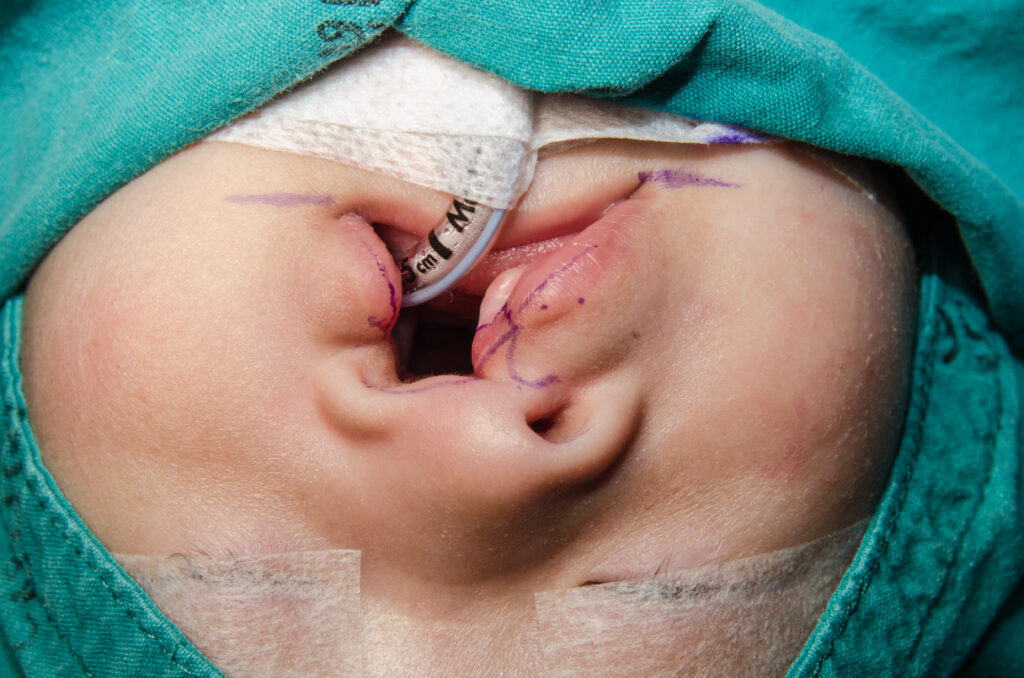Cleft Lip and Cleft Palate
Summary
Cleft lip and cleft palate are congenital conditions characterized by an opening or gap in the upper lip and/or the roof of the mouth. These conditions occur during fetal development and can affect appearance, speech, and overall oral health. Surgical intervention is the primary treatment to restore normal function and appearance.
Determining a Good Candidate
- Diagnosis:
- Diagnosis is typically made shortly after birth through a physical examination by healthcare professionals.
- Health Status:
- Good candidates for corrective surgery are generally in good overall health, and the surgery is often performed when the child is a few months old.
- Evaluation by a Specialist:
- Consultation with a cleft palate/craniofacial team is essential for a comprehensive evaluation and to determine the appropriate timing for surgery.
Operation Details
- Cleft Lip Repair:
- Typically performed around 3 to 6 months of age.
- The surgeon carefully closes the separation in the lip tissue, reconstructing a natural-looking upper lip.
- Cleft Palate Repair:
- Usually done between 9 to 18 months.
- Involves closing the gap in the roof of the mouth to improve speech and prevent feeding issues.
Recovery Process
- Postoperative Care:
- The child may experience swelling and discomfort, managed with prescribed medications.
- Parents receive detailed instructions for feeding, wound care, and monitoring for any signs of infection.
- Follow-up Appointments:
- Regular follow-up appointments are scheduled to monitor healing, assess speech development, and address any concerns.
Results
- Improvement in Appearance:
- Cleft lip and palate surgery aims to achieve a more symmetrical and natural appearance.
- Enhanced Speech and Feeding:
- Surgical intervention significantly improves speech development and facilitates proper feeding.
Complications
- Infection:
- Though rare, infections can occur postoperatively. Timely medical attention is crucial.
- Scarring:
- Skilled surgical techniques minimize scarring, but individual healing responses vary.
- Speech Development Challenges:
- Some children may require additional speech therapy to address residual speech challenges.
Parents are encouraged to consult with a specialized healthcare team for personalized guidance and to address any concerns related to their child’s cleft lip or palate.
FAQs

